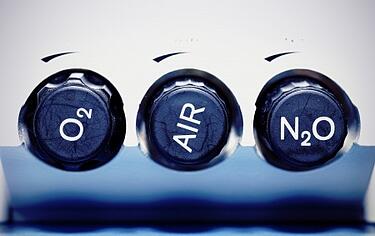 Dental sedation is perhaps the best thing that has happened in modern dentistry. If your body tenses up with fear each time someone talks about a dentist, you definitely need to understand how sedation dentistry can ease your fear and help you seek the right dental treatment for your teeth.
Dental sedation is perhaps the best thing that has happened in modern dentistry. If your body tenses up with fear each time someone talks about a dentist, you definitely need to understand how sedation dentistry can ease your fear and help you seek the right dental treatment for your teeth.
Understanding Dental Sedation
In sedation dentistry, the dentist uses some form of medication to help you relax during the procedure. A common misnomer for this type of dentistry is sleep dentistry. However, it does not mean you will be asleep during the procedure. Typically, you will be awake during the procedure, but will be unconscious if you are going under general anesthesia.
In sedation dentistry, there are different levels of sedation. These levels are as follows:
- Minimal Sedation: If you get minimal sedation, you are awake during the procedure, but are extremely relaxed
- Moderate Sedation: This means you may experience slurring while speaking and you also may not remember what happened during the procedure
- Deep Sedation: In this type of sedation dentistry, you will be barely conscious and can be awakened
- General Anesthesia: Here, you will be completely unconscious and unaware of what is happening around you
Types of Sedation Used by Dentists
Dentists have access to a wide array of sedation, such as:
- Inhaled Sedation: More commonly called laughing gas, nitrous oxide is mixed with oxygen and given to the patient through a mask. After inhaling the sedation, you will be relaxed. The dentist controls the amount of nitrous oxide you receive. This is not long-lasting sedation and wears off rather quickly. Hence, you should have no problem driving home after the dental procedure.
- Oral Sedation: As the term suggests, you will be given a pill to take orally. Usually, you would have to take it an hour prior to the dental procedure. As the pill takes effect, you will begin to feel drowsy, but will still be awake. Oral sedation is used for both minimal and moderate sedation. You may feel drowsy enough to go to sleep during the procedure, but can be awakened with a shake.
- IV Sedation: In this, you receive the medication intravenously. It tends to take effect quickly and the dentist constantly controls and monitors the level of your sedation.
- General Anesthesia: Here, you are given anesthesia to make you completely unconscious and you will not wake up until the effect of the anesthesia wears off or you are given medication to nullify the effects.
If the dental procedure causes discomfort, it is common for dentists to use local anesthetic to numb the area being treated. It relieves pain and allows you to be comfortable during the procedure.
Can You Ask for Dental Sedation?
If you suffer from fear and/or anxiety and it prevents you from seeking dental treatment, you are a perfect candidate for sedation dentistry. Usually, this method of dentistry is apt for those:
- Who have low threshold for pain
- Who are unable to sit still on the chair due to fear or anxiety
- Who have extremely sensitive teeth
- Who have severe gag reflex
- Who require extensive dental work
If you fall in any of the above mentioned categories, you can speak to your dentist about sedation dentistry.
Is Your Dentist Allowed to Perform Sedation Dentistry?
You should remember dentists are trained to administer pills or nitrous oxide. However, if you require general anesthesia or deep sedation, find out whether your dentist has successfully completed the relevant program from Commission on Dental Accreditation (CODA). Some dentists can have a dentist anesthesiologist as a part of their team to administer deep sedation or general anesthesia which is perfectly acceptable.
In the U.S. sedation techniques are regulated by the state’s dental board and several states mandate dentist have relevant permits to administer sedation. So check your state’s regulations before approaching a dentist for dental sedation and dental treatment. But one this is for sure sedation dentistry has made it easy to enjoy pain-free and anxiety-free dental treatments.




